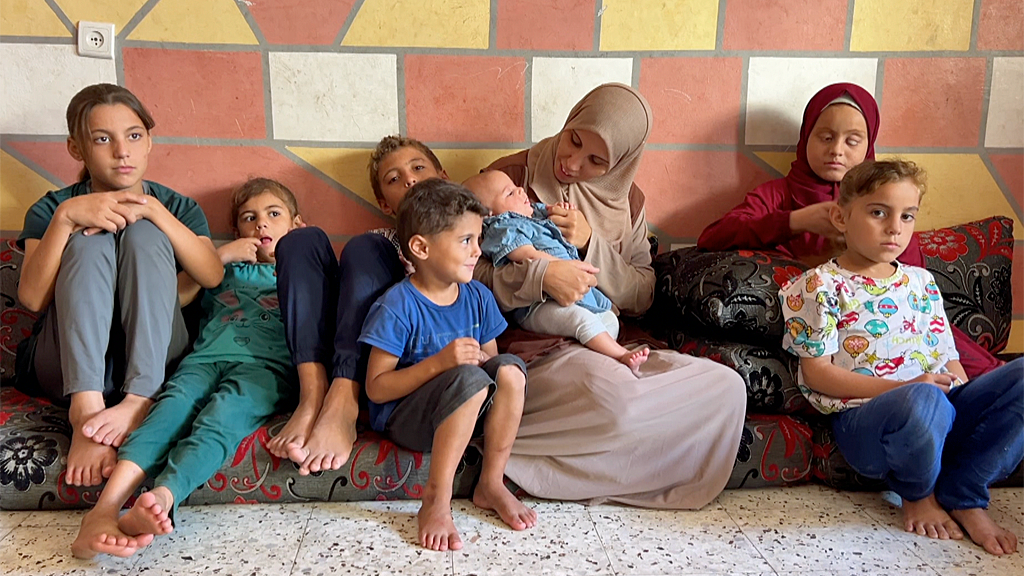Malak suddenly stops talking, leans forward and kisses her baby. Rahma has fair hair and blue eyes. The difference in age is 13 years. Malak, who lost her father to an Israeli attack, sees the four-month old baby as an unimaginably precious present.
She says, “I love my mother in a way that no one else does.”
The BBC returned to Gaza in order to meet Malak, as well as other survivors of the war, on the first anniversary. We first spoke to Malak in February after the death of Abed-Alrahman al-Najjar. He was a 32-year-old farm worker.
The father of seven was believed to have been struck by shrapnel during the Israeli commando operation in Rafah to rescue two Hamas hostages. The raid occurred while he was sleeping with his family inside a refugee camp.
Their tent was near the battle. Malak lost her eye in the attack. She also sustained a side wound. She was traumatised at the time. When she met a BBC co-worker, she cried out in anguish: “I’m in pain.” I lost my dad. Enough!”
Since then, doctors have implanted a small white ball in her empty socket. It will suffice until she can be fitted with an appropriate prosthetic eye.
Malak doesn’t complain about the loss of her father, but imagines what he would think if he was able to hold Rahma three months after a death. She smiles, saying: “He always wished to have a girl with blue eyes.”
Malak is now determined to become an eye doctor to help those who suffer like her.
She is sitting with her baby and five younger siblings, three sisters and two brothers, between the ages of four and twelve, on a concrete slab in Khan Younis, southern Gaza. Before the war, her father worked hard to support his family on other people’s farm.
“Our father would take us to the store and buy us clothing in winter. He was so kind. Malak recalls that he would deny himself, but never us.
Then came the 7 October 2023 Hamas attack on Israel, in which more than 1,200 Israelis – including dozens of children – were killed. More than 250 hostages have been taken into Gaza. Thirty children were taken, including a nine-month-old baby.
The attack triggered Israel’s ground invasion, its relentless air strikes, and the fighting with Hamas. Hamas’ health ministry reports that almost 42,000 people are dead. According to the United Nations, 90% of Gaza’s residents – or nearly two million people — are displaced. Malak’s entire family has been uprooted at least four times.
She says, “I carry a burden that even mountains can’t bear.” “We were displaced and it feels as if our entire life is displacement. We move from one place to another.”
The Israeli government does not allow foreign journalists into Gaza. Instead, the BBC relies on local journalists to report on the humanitarian crisis. We asked them questions and asked them contact some of the Palestinians that we spoke to in Gaza during the past year.
These journalists are also affected by the fear and displacement that the people they cover experience. Displacement means uncertainty. Constant fear. Will the child sent to fetch a bucket of ice water come home? Or will they find their house destroyed and their family buried beneath the rubble when they return? Nawara, Abed-Alrahman’s young widow, is haunted by these questions every day.
“There is always shelling, and we are always terrified.” “I hug and hold my children constantly,” she says.
Read More @ www.bbc.com













